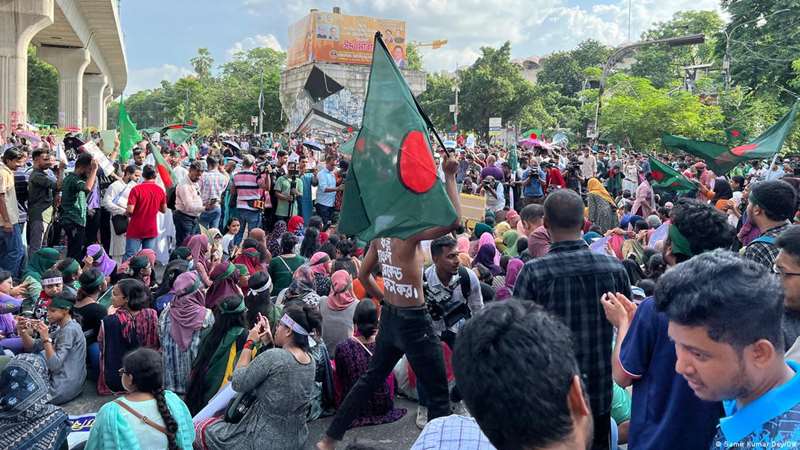US wants to further improve labor rights

US wants to further improve labor rights
On 22 Apr 2024, delegations from the United States and Bangladesh convened at the Secretariat in Dhaka to discuss further improvements in labour rights within Bangladesh. Led by Brendan Lynch, Assistant US Trade Representative for South and Central Asia, the US delegation emphasized 11 key factors for enhancing labour rights. Commerce Secretary Tapan Kanti Ghosh led the Bangladesh side in the meeting. The discussions primarily centered around an action plan proposed by the visiting US Trade Representative team, aiming to address issues such as trade union formation, worker rights protection, and legal amendments. Despite the demands, it was emphasized that these changes would not infringe upon Bangladesh's constitution or international obligations.
Attendees
- Brendan Lynch - Assistant US Trade Representative for South and Central Asia
- Tapan Kanti Ghosh - Commerce Secretary, Bangladesh
- Officials from finance, industries, and agriculture ministries
- Representatives from National Board of Revenue (NBR) and Bangladesh Bank
- Peter Haas - US Ambassador to Dhaka
- Shilpi Jha - USTR Senior Commercial Specialist
Key Discussions and Outcomes
Labour Rights Improvement Action Plan: The US delegation presented an action plan focusing on 11 factors to enhance labour rights in Bangladesh. The plan emphasized the need for effective action against exploitation of trade union leaders and workers, accountability of factory owners, and amendments to labour laws to ensure equal rights for Bangladeshi trade unions.
Proposed Amendments: Specific amendments to the Bangladesh labour law were proposed, including reducing the minimum worker consent required to form a trade union from 20%, increasing punishment for violators, and revoking laws dissolving unions with less than 20% membership.
Equal Rights for EPZ Workers: The US urged amendments to ensure workers in Export Processing Zones (EPZs) have the right to participate in trade union activities and collective bargaining, aligning with international standards.
Efficiency in Trade Union Registration: Recommendations were made to streamline the process of trade union registration, aiming to complete the application process within 55 days and provide regular updates on pending appeals.
Stopping Obstructions: Concerns were raised about obstacles hindering labour inspector recruitment and registration processes, with calls to address delays and ensure budget allocations for recruitment.
Conclusion
The meeting between US and Bangladesh delegations marked an important step towards addressing labour rights issues in Bangladesh. While the US presented a comprehensive action plan, both sides emphasized the importance of improvements that align with Bangladesh's constitutional and international obligations. Moving forward, collaborative efforts are crucial to enact meaningful reforms that ensure the protection and empowerment of workers in Bangladesh.
Attachments
- Action Plan for Labour Rights Improvement
- List of Attendees
- Proposed Amendments to Bangladesh Labour Law









.jpg)
পাঠকের মন্তব্য